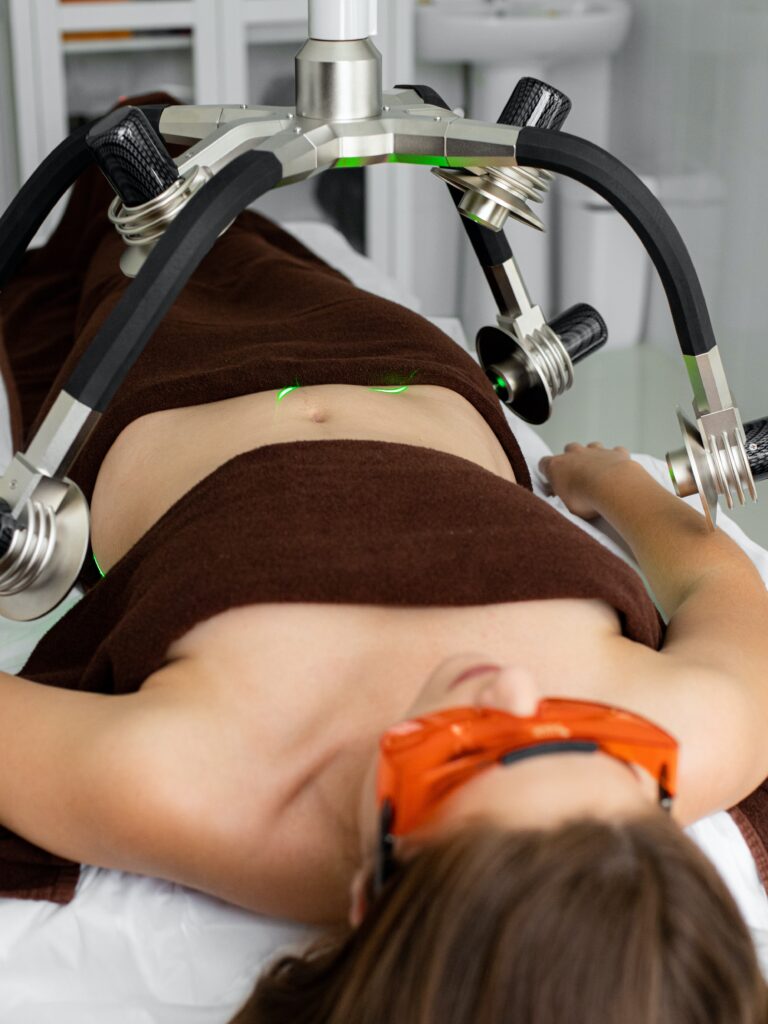As with any surgical procedure, the decision to undergo breast surgery is deeply personal and often comes after much contemplation. While the majority of these surgeries are conducted safely and professionally, ensuring the utmost safety and avoiding negligence is paramount.
Here, we shed light on the intricacies of breast surgery, highlighting the importance of recognising professionalism and understanding potential red flags. By being well-informed, individuals can confidently embark on their surgical journey, ensuring their wellbeing is prioritised at every step.
Understanding breast surgery

Breast surgery, a specialised field within plastic and reconstructive surgery, encompasses a range of procedures tailored to the unique needs and desires of each individual. Here’s a brief overview of the most common types:
Breast augmentation: often referred to as a ‘boob job’, this procedure involves using implants or fat transfer to increase the size or change the shape of the breasts. It’s popular among those who desire a fuller bust, or wish to restore breast volume lost after weight reduction or pregnancy.
Breast reduction: this surgery aims to alleviate the discomfort associated with overly large breasts by removing excess breast tissue, fat and skin. It can also make the breasts more proportionate to the rest of the body.
Breast lift: this surgery aims to change the way that the breasts lie on the chest. This is typically performed on those who feel that their breasts are ‘sagging’.
Each of these surgeries has its own set of procedures, recovery times and potential risks. It’s crucial for anyone considering breast surgery to be well-informed and have a clear understanding of what the procedure entails, from the initial consultation to post-operative care.
Recognising the signs of professionalism
When considering breast surgery, it’s essential to ensure that you’re in the hands of a true professional. Recognising the hallmarks of professionalism can make all the difference in ensuring a safe and satisfactory outcome. Here are some key indicators to look out for:
Board certification: always ensure that your surgeon is board-certified by a recognised medical board in the UK, such as the British Association of Aesthetic Plastic Surgeons (BAAPS) or the British Association of Plastic, Reconstructive and Aesthetic Surgeons (BAPRAS). This certification indicates that the surgeon has undergone rigorous training and meets the high standards set by the profession.
Track record: a reputable surgeon will be transparent about their experience and outcomes. Before and after photos, patient reviews, and testimonials can provide valuable insights into the surgeon’s expertise and the satisfaction of previous patients.
Thorough consultations: a professional surgeon will always prioritise a comprehensive consultation. They should take the time to discuss the risks and benefits of the procedure, set realistic expectations, and answer any questions you might have. This is also an opportunity for the surgeon to understand your motivations and ensure you’re a suitable candidate for the surgery.
Clean and accredited facilities: the clinic or hospital where the surgery is performed should be clean, well-maintained and accredited by relevant health authorities. High standards of hygiene and care are paramount to avoid post-operative complications.
Continued professional development: medicine and surgical techniques are continually evolving. A dedicated surgeon will stay updated with the latest advancements in their field, ensuring they provide the best care possible to their patients.
Red flags to watch out for
While many surgeons and clinics operate with the utmost professionalism and care, it’s crucial to be aware of potential warning signs that might indicate a less-than-ideal choice. Here are some red flags to be vigilant about:
Avoidance of risk discussions: a responsible surgeon will always discuss potential risks or complications associated with the procedure. If a surgeon dismisses these concerns or avoids the topic altogether, it’s a cause for concern.
Heavily discounted procedures: while everyone loves a good deal, be wary of prices that seem too good to be true. Quality surgery comes at a cost, and heavily discounted procedures might indicate corners being cut, which can compromise safety.
Pressure to make quick decisions: a reputable clinic will give you the time and space to consider your options. If you feel rushed or pressured into making a decision, it’s a sign to step back and reconsider.
Lack of relevant qualifications: always check the surgeon’s qualifications. If they’re hesitant to show them, or if they lack board certification from recognised institutions, it’s a significant red flag.
Absence of post-operative care plans: aftercare is a crucial part of the surgical process. If a surgeon or clinic doesn’t provide clear post-operative care plans or follow-up appointments, it indicates a lack of comprehensive patient care.
Generic or impersonal consultations: every individual is unique, and consultations should be tailored to the specific needs and concerns of the patient. If a consultation feels generic or if the surgeon doesn’t seem to be genuinely listening to you, it might be a sign to look elsewhere.
The consequences of negligence
Negligence in the realm of breast surgery, as with any medical procedure, can have profound and lasting implications. It’s essential to understand the potential consequences, both to make informed decisions and to recognise when things might not have gone as they should. Here are some of the repercussions of negligence:
Physical implications: negligence can lead to a range of physical complications. These might include inappropriate scarring, asymmetry, inappropriate size, double bubble (a double rather than single mound appearance) and symmastia (the breasts joining together). In some cases, corrective surgeries might be required, further extending recovery times and potential risks.
Psychological implications: the emotional toll of a procedure gone wrong can be immense. Patients might experience decreased self-esteem, feelings of regret, or even develop mental health issues such as depression or anxiety. The psychological impact can sometimes be more challenging to address than the physical ones.
Financial burden: corrective surgeries or treatments to address complications can be costly. Patients might find themselves facing unexpected medical bills, not to mention potential lost wages from extended recovery times or additional procedures.
Long-term health concerns: in some cases, negligence can lead to long-term health issues. For instance, undetected infections or complications can have repercussions on overall health and wellbeing.
Understanding these potential consequences underscores the importance of choosing a reputable and professional surgeon and clinic. It also highlights the need for thorough post-operative care and monitoring. If you suspect negligence, it’s crucial to seek a second opinion and consider legal advice to understand your rights and potential remedies.
Steps to take if you suspect negligence
If you believe that negligence has played a part in your breast surgery experience, it’s essential to act promptly to protect your health, rights and wellbeing. Here are the steps you should consider taking:
Document everything: begin by documenting any evidence that might be relevant. This includes photographs of the affected area, medical records, and any correspondence or communication you’ve had with the surgeon or clinic. Keeping a diary of post-operative symptoms and experiences can also be beneficial.
Seek a second medical opinion: if you’re concerned about the outcome of your surgery or are experiencing unusual symptoms, consult another medical professional. They can provide an objective assessment of your situation and advise on any necessary corrective measures.
Consult with a legal professional: if you believe you’ve been a victim of medical negligence, it’s wise to consult with a solicitor experienced in cosmetic surgery malpractice. They can guide you on the potential for a claim, the evidence required, and the process involved.
Report to regulatory bodies: in the UK, you can report concerns about a surgeon or clinic to regulatory bodies such as the General Medical Council (GMC) or the Care Quality Commission (CQC). These organisations can investigate and take action if standards are not being met.
Engage in therapy or counselling: the emotional toll of a procedure gone awry can be significant. Consider seeking therapy or counselling to help process your feelings and navigate the challenges.
Stay informed: research and educate yourself about your rights as a patient and the standards that medical professionals should adhere to. Knowledge is empowering and can help you advocate for yourself more effectively.
Breast surgery, like any medical procedure, requires a significant level of trust placed in the hands of medical professionals. While the majority of surgeries are conducted with expertise and care, understanding the potential pitfalls and being equipped to recognise signs of negligence is paramount. By being well-informed, patients can ensure their safety, advocate for their rights, and navigate their surgical journey with confidence.






